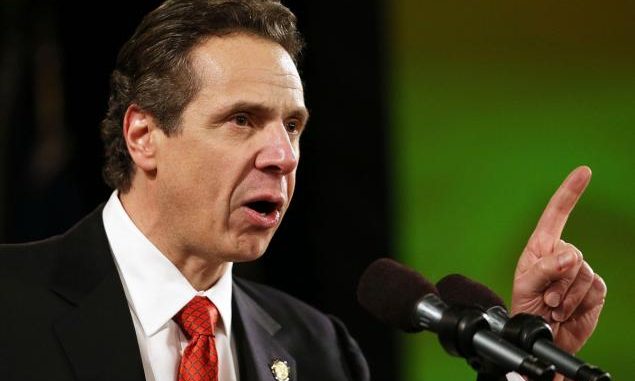
On Sept. 6, Gov. Andrew Cuomo signed a bill into law requiring all public schools in the state to test their water for lead every five years. The legislation takes action in the wake of a nationwide scramble to test and ensure public water safety, and these fears have hit closer to home following the discovery of lead contamination in school districts located in New York City and New Rochelle.
New Paltz Central School District superintendent Maria Rice, however, is confident that her students’ water is safe, and outlined the district’s response to the issue in an email interview with The Oracle.
According to Rice, the district tested water from all of its locations in April 2016, in cooperation with Ulster BOCES’ Health, Safety and Risk Management division. These tests showed no detectable levels of lead at any location, Rice said, adding that during her tenure of over 10 years, “the water has never tested unsafe.”
Most of the district schools are connected to the municipal source provided by the Village of New Paltz. Public water is routinely tested for contaminants by the New York State Department of Health, but schools must test their faucets to ensure their plumbing is safe.
“We routinely check Lenape Elementary School because it is on a well,” Rice said. “All schools except the Lenape Elementary School are on municipal water. The school does not share its well water with anyone.”
Rice added that the district filters that school’s water.
Private wells are protected less by federal, state and local government than municipal water, and, according to the Environmental Protection Agency, can suffer contamination from sources like landfills, septic tanks and agriculture. Filtration is a common fix.
The legislation Cuomo signed into law affects the New Paltz Central School District, so Rice explained its new requirements under the law. The district must test water from any school built before 1986 and collect samples every five years.
Elementary schools’ testing deadline is Sept. 30 and all other schools must test by Oct. 31. Any faucet with lead levels exceeding 15 parts per billion must be shut off; the district must fix faulty faucets while providing safe alternatives. The district must notify local health departments, parents and staff within 10 days of an unsafe result.
Rice emphasized that all results from district water testing, safe or unsafe, must be made available to the public and posted on the district website within six weeks. She added, “We are working with our BOCES Safety Coordinator, Dr. Michael O’Rourke, to ensure we comply with all required testing.”
Rice mentioned that districts can be waived from the new regulations if they had been testing for lead after Jan. 1, 2015, but did not say whether New Paltz qualified for the waiver.
The district appears safe from lead contamination, but Rice says that the schools have a plan for the worst-case scenario anyway.
Should a test prove the district’s water to be unsafe, “the plan includes using water coolers and bottles of purchased water until such time as the situation is fixed,” Rice said. “Along with providing clean water to cook with and drink, the water fountains will be turned off and staff and students would be instructed not to drink the water.”
